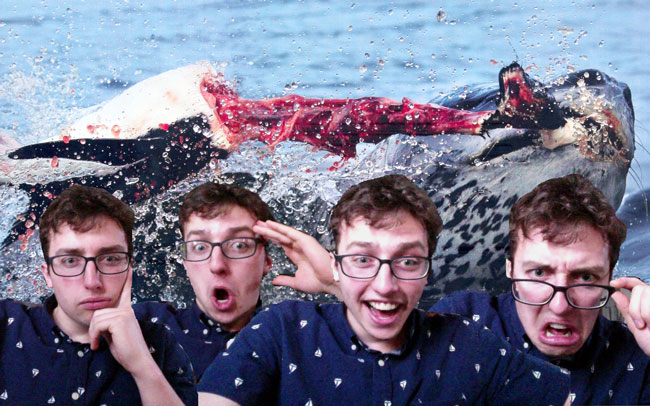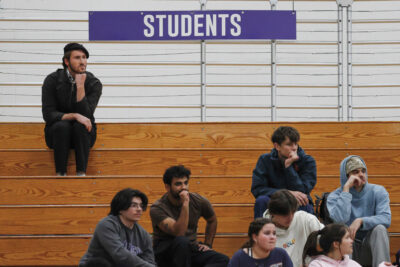The recent release of “Planet Earth II” confirms that nature documentaries continue to hold a tight grasp on the hearts and minds of western consumers. Using state of the art drone technology, “Planet Earth II” offers jaw-dropping footage of pristine landscapes, incredible close-ups of animals and breathtaking colors of plants and geological formations.
I mean, nature is beautiful, right? To use the eloquent succinctness of our provocative Mr. President: Wrong!Nature is h#!@. All it takes is some deleted documentary scenes on YouTube to realize your romantic notion of “nature” couldn’t be further from the truth! We wrongly equate ‘living’ on Planet Earth to ‘thriving’ on Planet Earth.
Our documentaries perpetuate the notion that life is this beautiful, flourishing and prospering thing. Just search ‘nature is metal’ on Google and you’ll soon realize that life on Planet Earth is really just a never-ending plea for mercy against the cold, cruel hand of natural selection.
With the horrified fascination of a life sciences major, I’m watching videos of animals getting pecked, squeezed and mauled to death.
“This is natural,” I try to tell myself, as I watch a zebra getting ripped in half by an alligator. “Good for the seal,” I squeak as I watch a penguin get disemboweled in midair. “And God looked over all She had made and saw that it was very good,” I manage to whisper as I watch a newborn giraffe get shredded by a pack of hyenas.
I’ve officially concluded that the wilderness is simply an arms race for bigger claws, teeth, spikes and poisons. Seriously – out in nature, you’re either doomed to a bone crushing, bloody and excruciating death at the hands of another organism – or a slow, sickly and withering one from thirst, hunger or disease.
The ironic juxtaposition of this realization and my current situation (lounging lazily on the couch shoving ice cream and frozen pizza in my face) makes me want to both laugh and cry in self pity.
During my junk-food-induced introspection, I am suddenly struck by an epiphany: How on planet Earth did humans escape the food chain? After all, we’re animals too. The gory YouTube videos seemed to suggest that ‘there’s always a bigger fish,’ but I don’t have to worry about a grizzly bear mauling me at the grocery store. So how the heck did humans become the biggest fish?
Lets face it: we don’t have any physical assets, and we’re stupid, lazy and clumsy. It’s true! I’ve seen people light fireworks in their butts, get confused by revolving doors, walk their dogs from their car window and attempt to drink three liters of olive oil.
The list goes on and on. I’m stunned that our species has made it this far and with so much power over the environment to boot.
We’ve systematically separated ourselves from nature. Nowadays, instead of us eating exhausted food, we get exhausted eating our food. (Every Saturday I get slumped after pounding my two Sausage Egg and Cheese McGriddles with syrup-infused pancake buns, probably because my body isn’t adapted to consume 1200 calories and 160 percent of my daily cholesterol in a single sitting.)
The point is that nowadays, we in the West occupy a reality that is as savagely indifferent to the environment as the carnivorous animals on YouTube are to their prey. Our species somehow escaped the food chain and now (literally) controls the fate of every other organism on the globe. In the words of Marshall Davis Jones:
From the Garden of Eden
To the branches of Macintosh
Apple™ picking has always come at a great cost
Western society has a big debt to pay nature. Shows like “Planet Earth” – romanticized narratives of the natural world generated for easy consumption – are just more evidence of how far removed our artificial little Human World is from the Real World, bloody, gory and primal as it is.
So I encourage you to venture out into the world of crazy violent nature videos because the harsh brutality of omitted nature documentary footage serves as a visceral reminder to appreciate where we are, where we’ve come from and what we ultimately need to care for.



